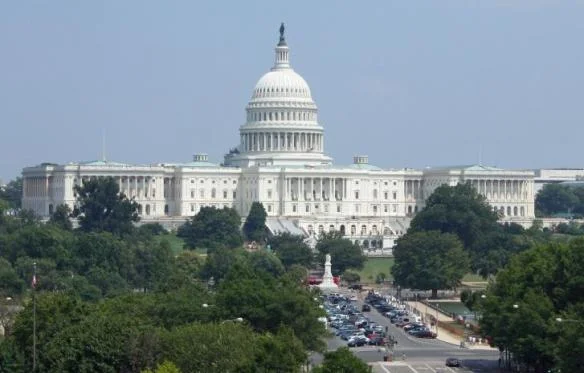There's still time to apply! Accepting applications for Fall 2026 with scholarship support available. Apply now!
There's still time to apply! Accepting applications for Fall 2026 with scholarship support available. Apply now!
The Scrivner Institute fosters interdisciplinary research on cross-cutting public policy issues, with a primary focus on strengthening democratic governance, reducing inequality and enhancing inclusion, and catalyzing urban policy innovation. We explore these issues from the local to global and in comparative context, with an approach that centers inclusive and ethical principles and emphasizes rigorous scholarship engaged in the public and policy spheres.
A crisis of legitimacy besets government and civic institutions in the United States and around the world. The deterioration of civil discourse layers on top of recent decades of rising political radicalization and social polarization. The Scrivner Institute explores efforts to renew society's ability to engage in productive dialogue — and thereby improve policy outcomes as well how people experience the processes of democratic governance.
Each year, the Scrivner Institute and the Korbel School will convene a politically and geographically diverse group of civic, political, and private sector leaders across the state of Colorado. In focused working sessions over several months, each group will put civil discourse into action, working together to produce a set of comprehensive, collaborative policy recommendations to address a locally salient public policy challenge.
Funded to date by the Walton Foundation, Civic (Re)solve, Gary Community Ventures, the LOR Foundation, Gates Family Foundation, and the Korbel School’s Social Science Foundation.
A major contemporary challenge to democracy lies in how political leaders regularly use state bureaucracies to entrench their power, undermine democratic institutions, and gain political advantages over their opponents. In some cases, however, bureaucratic actors resist these political maneuvers, serving instead as effective protectors of democracy. This project, led by Professor Rachel Sigman, investigates when, how, and why state bureaucracies act as constraints on aspiring autocrats seeking to entrench their power and undermine democratic institutions.
Learn more about Dr. Sigman's work here.
A project funded by the Carnegie Corporation of New York and housed at the Korbel School in partnership with the Scrivner Institute, Bridging the Gap promotes scholarly contributions to public debate and decision making on global challenges and U.S. foreign policy. It equips professors and doctoral students with the skills they need to produce influential policy-relevant research. It also spearheads cutting-edge research on problems of concrete importance to governments, think tanks, and international and non-governmental organizations. Bridging the Gap is committed to fostering progress on issues of diversity, equity, and inclusion within the academy and in policy engagement activities.
Learn more about Bridging the Gap on its website.


Systemic injustices — economic, racial, geographic, and more — abound from the local to global levels. Scholars affiliated with the Scrivner Institute research how specific policy interventions contribute to reducing inequality and enhancing inclusion.
In this white paper, Scrivner Institute of Public Policy faculty affiliates Stefan Chavez-Norgaard, Jennifer Greenfield, and Kaitlyn Sims model several different programmatic options for a potential Colorado Cash Dividend (CCD) program and weigh relative strengths, weaknesses, and tradeoffs between them. The authors consider different, modular options geared toward specific populations with a recommendation to ultimately pair universality with targeted, high-need population scaling. This white paper was prepared for the Denver Basic Income Project.
With support from the Wisconsin Department of Children and Families, Assistant Professor Kaitlyn Sims is evaluating the Wisconsin Domestic Violence Housing First program. Housing First is a policy that serves domestic violence (DV) survivors’ needs by removing barriers to housing stability via flexible financial assistance, mobile advocacy, trauma-informed practice, and partnerships with community housing providers. With colleagues at UW–Madison, Professor Sims is responsible for designing and implementing an evaluation of Housing First pilot projects at nine DV shelters and service providers across the state.
Read more about the program evaluation here and about barriers to safe and secure housing here.
Learn more about Dr. Sims’ work here.
With funding from Arnold Ventures, Assistant Professor Ajenai Clemmons, together with researchers at University of Pennsylvania and Duke University, is leading an impact evaluation of the Denver Police Department's (DPD) program for investigating non-fatal shootings. Employing a mixed methods approach, the team will determine if and how much DPD's 2020 changes to processes and protocols have resulted in more suspects being arrested and charged, and derive lessons learned for other law enforcement agencies.
Read more about the project here.
Learn more about Dr. Clemmons’ work here.
Assistant Professor Kaitlyn Sims is exploring the recently enacted ban on cash bail in the state of Illinois and evaluating the effect of the ban on daily jail populations by defendant and charge characteristics in attempt to demonstrate the economic impacts of this law for defendants’ households and local governments.
Learn more about Dr. Sims’ work here.
An interdisciplinary group of Scrivner-affiliated faculty — Dr. Jennifer Greenfield (Social Work), Dr. Hinckley Jones-Sanpei, Dr. Chiara Piovani (Economics), and Dr. Lapo Salucci (Public Policy) — are exploring the stratified impacts of COVID-19 on economic inequality and wellbeing and will deliver policy suggestions designed to enhance social justice.
Learn more and read their white paper here.
Cities often lead the charge on bold new policy approaches to issues that are also salient on a national and global level, such as climate change, public health, housing, and labor policy. Our home of Denver, CO offers prime examples of urban policy innovation. The Scrivner Institute is developing a research program on the role of the city as a global policy actor, through a comparative lens, to further understand the unique and imperative role of urban policy.

Copyright ©2026 University of Denver | All rights reserved | The University of Denver is an equal opportunity institution